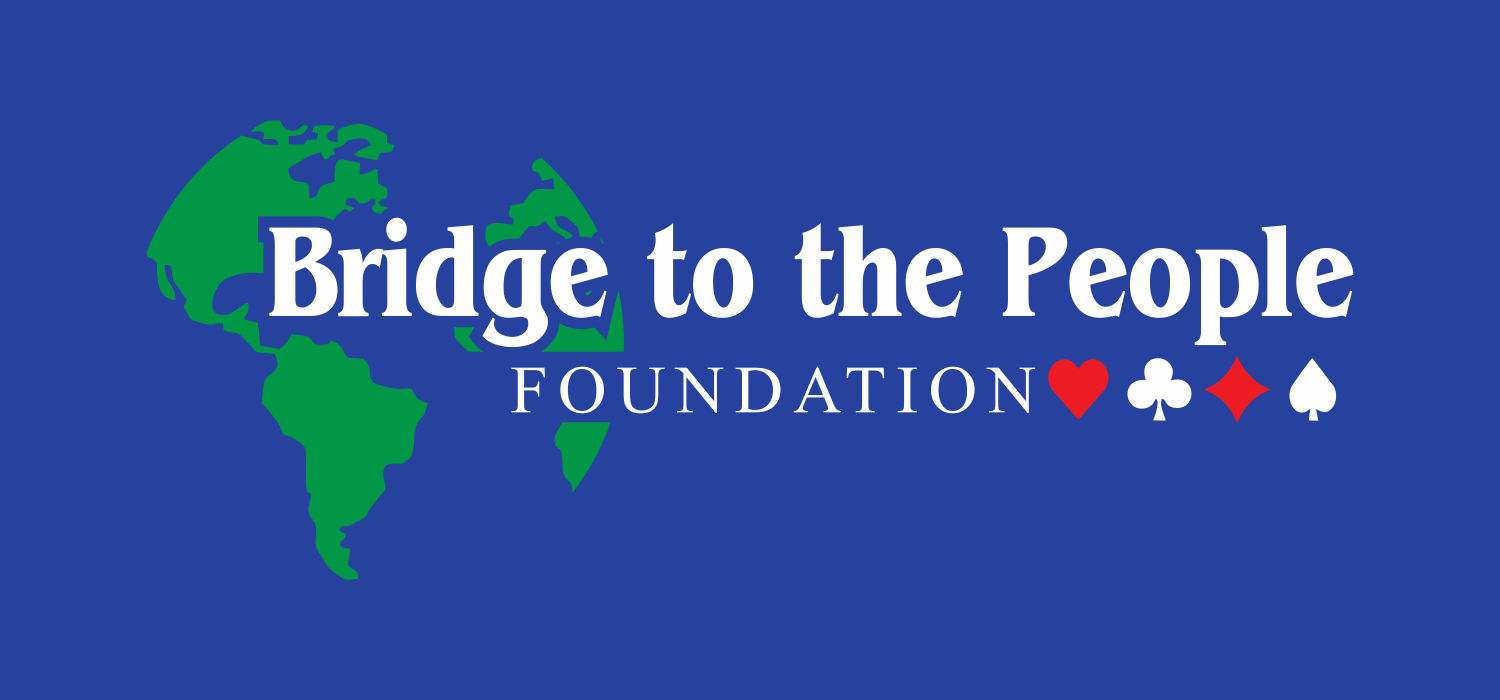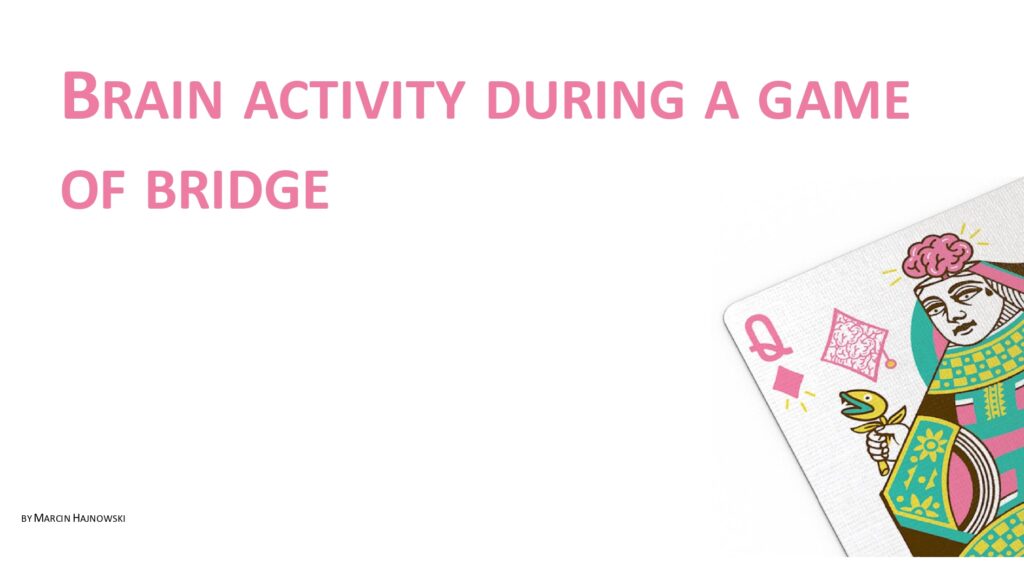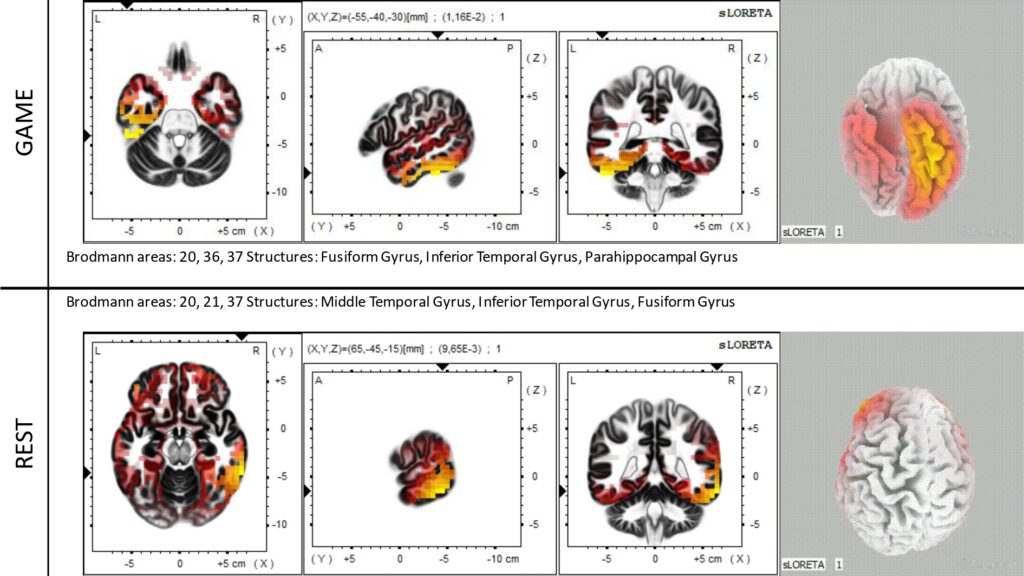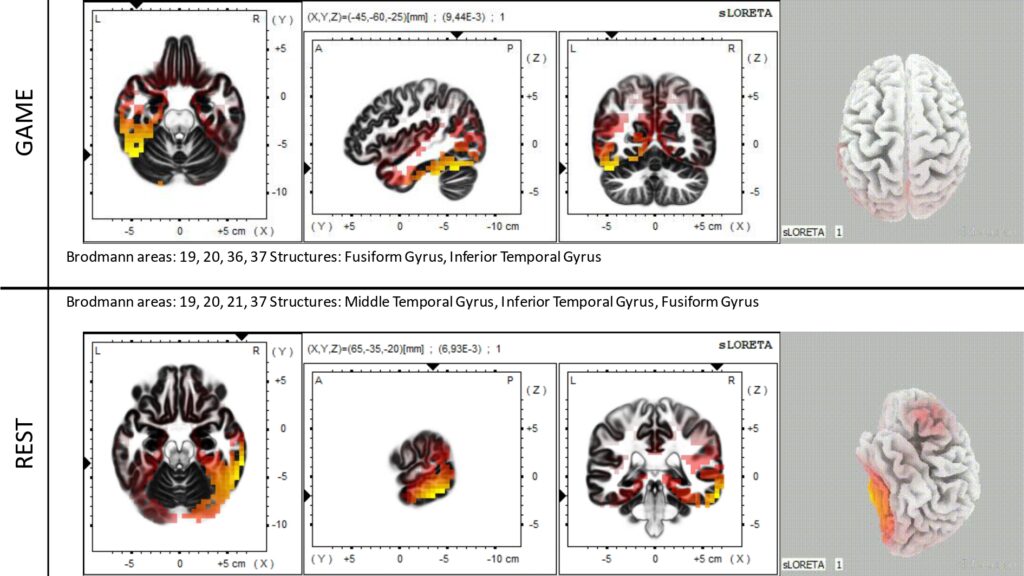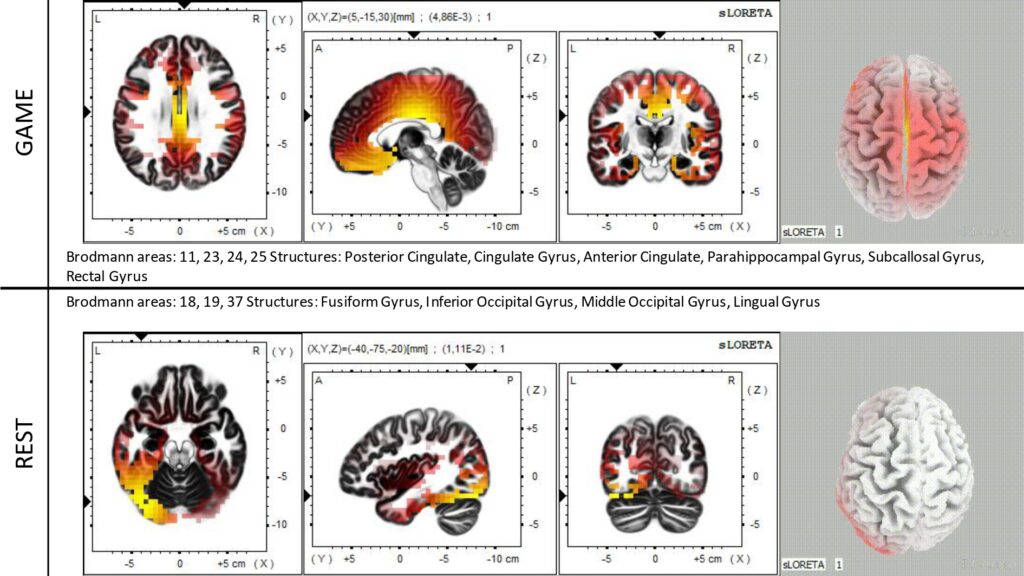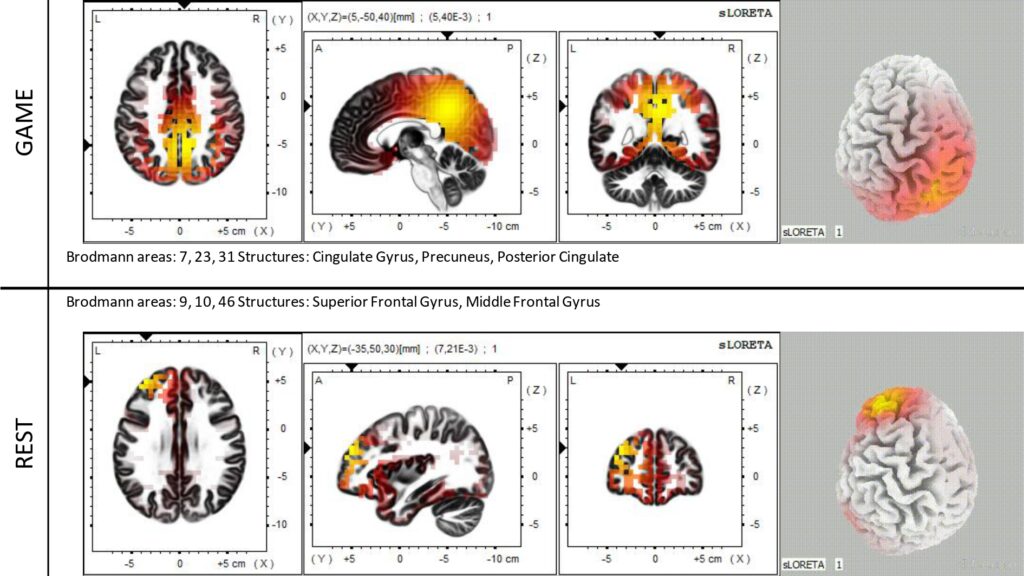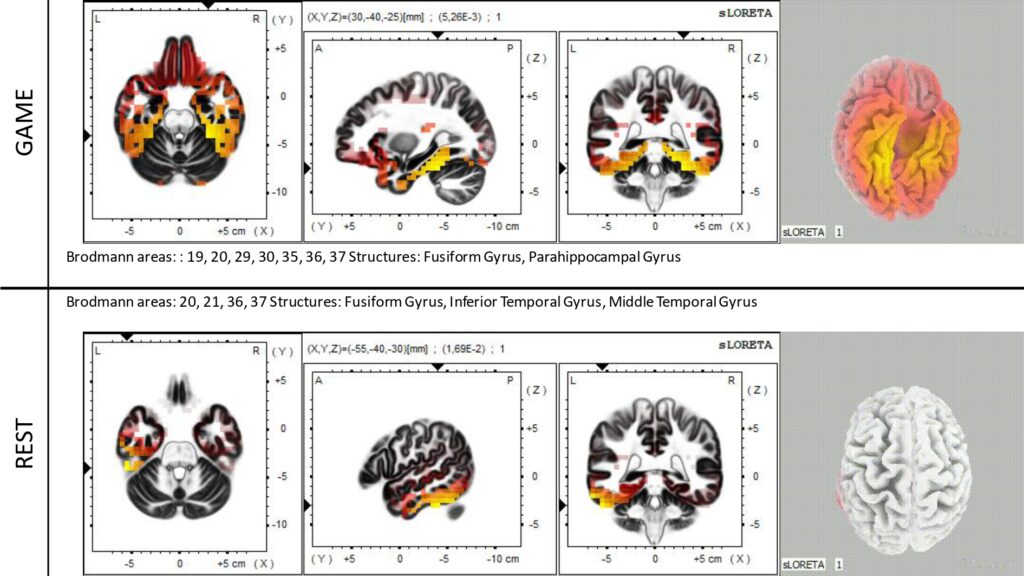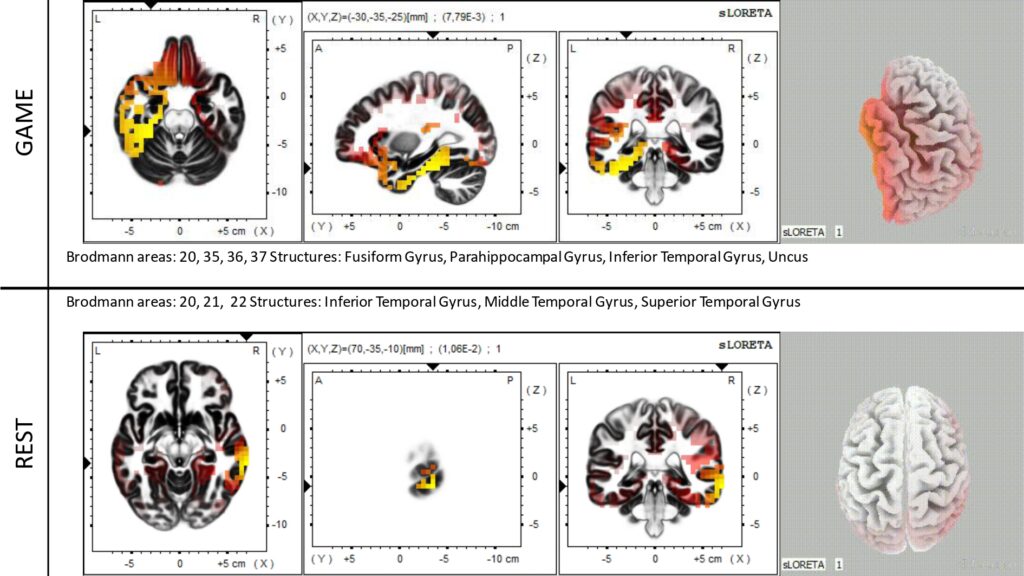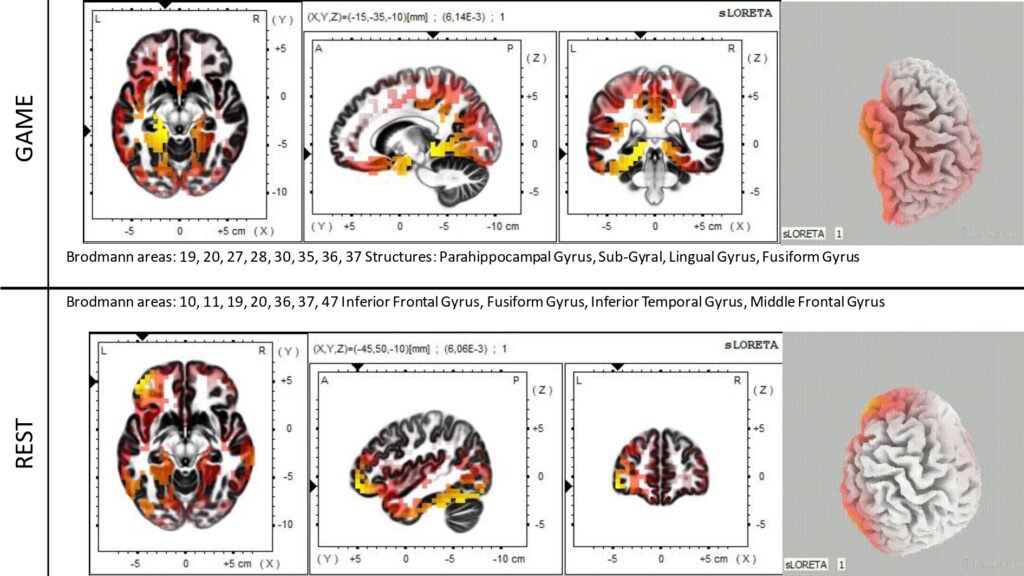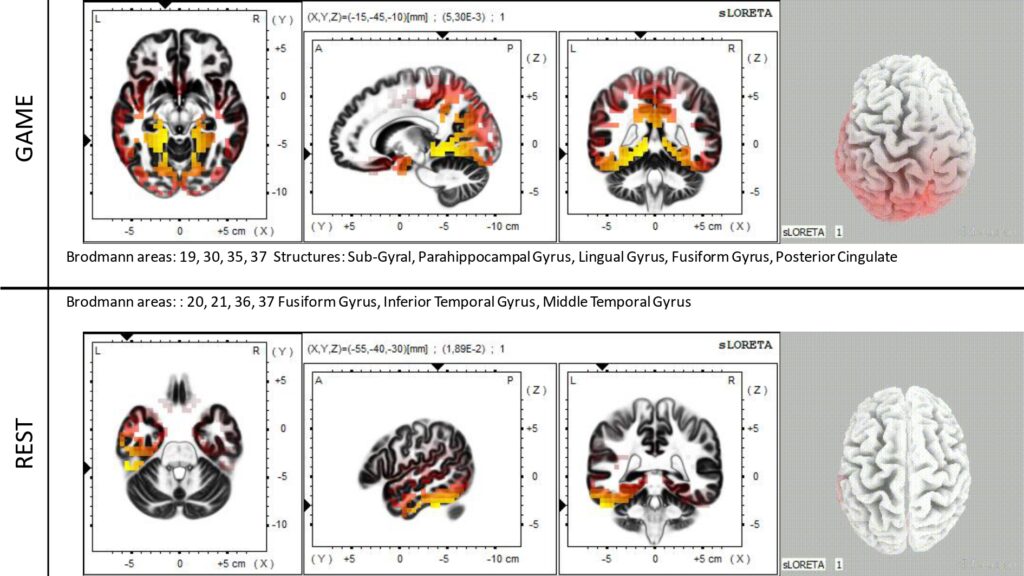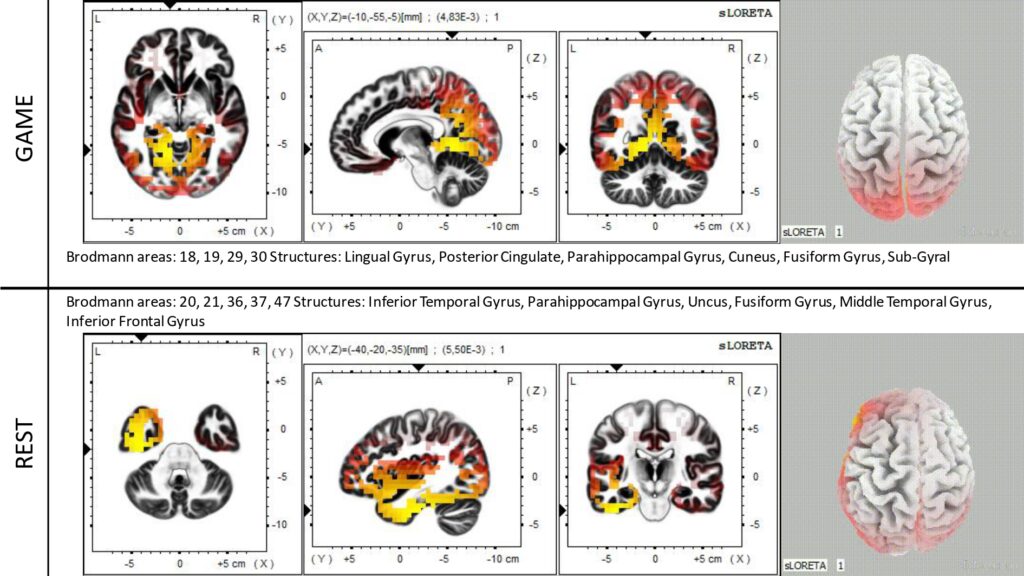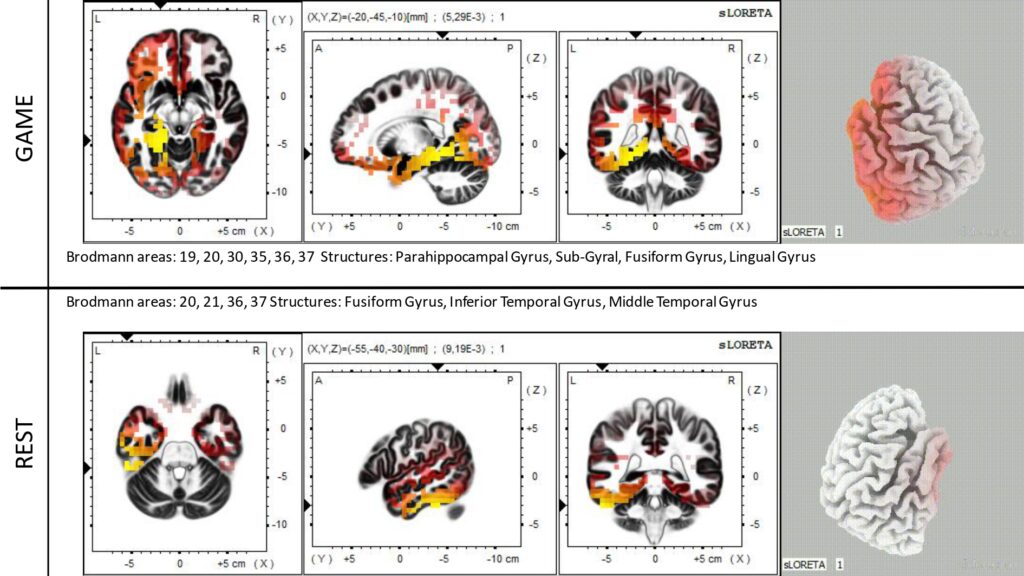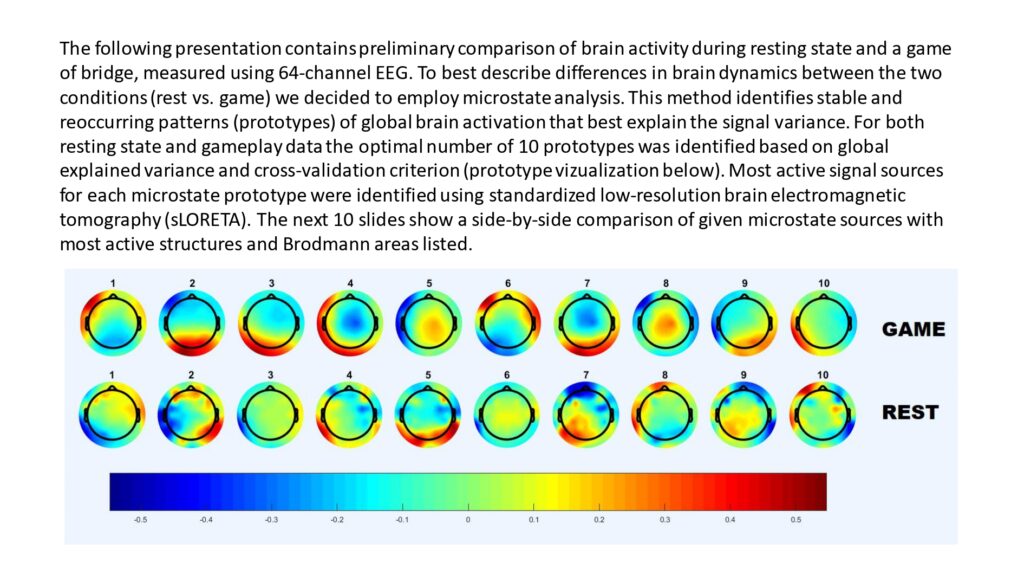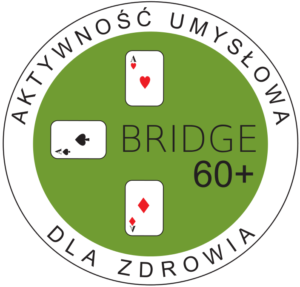[gtranslate]
Projects
Projects
We are conducting research at DDP and DPS on the effects of playing the game of bridge on dementia processes within elderly people. We apply a 20-week course of learning how to play and the game of bridge itself to those who are interested. Before and after the course, we carry out a series of tests to determine the level of cognitive ability, the degree of depression and the wellbeing of the participants.
BRIDGE – DEMENTIA PREVENTION OR ALZHEIMER THERAPY AS WELL-downalod
Initiated by Mark Malysa, the Bridge60+ program is intended to activate seniors - almost everyone has heard of or played bridge, and everyone can learn and improve their memory, make new acquaintances or even friends, involve family, children, grandchildren and form a pair with them. Additional benefits include prevention of neurodegenerative diseases, that is, rejuvenation of the brain, so - pleasant with useful. The results of the study look very promising, interviews with program participants confirm the benefits of bridge. The centers operate all over Poland, you are welcome!
www.bridge60plus.pl
Our youngest students during the game and with a visit to the World Bridge Championships.
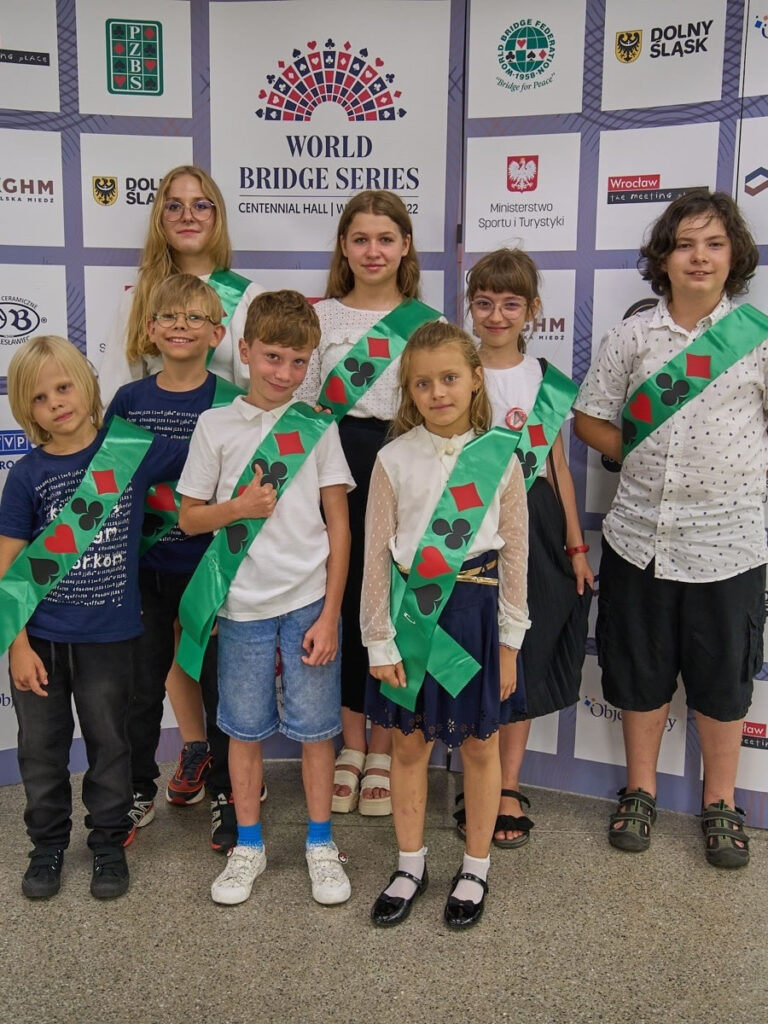
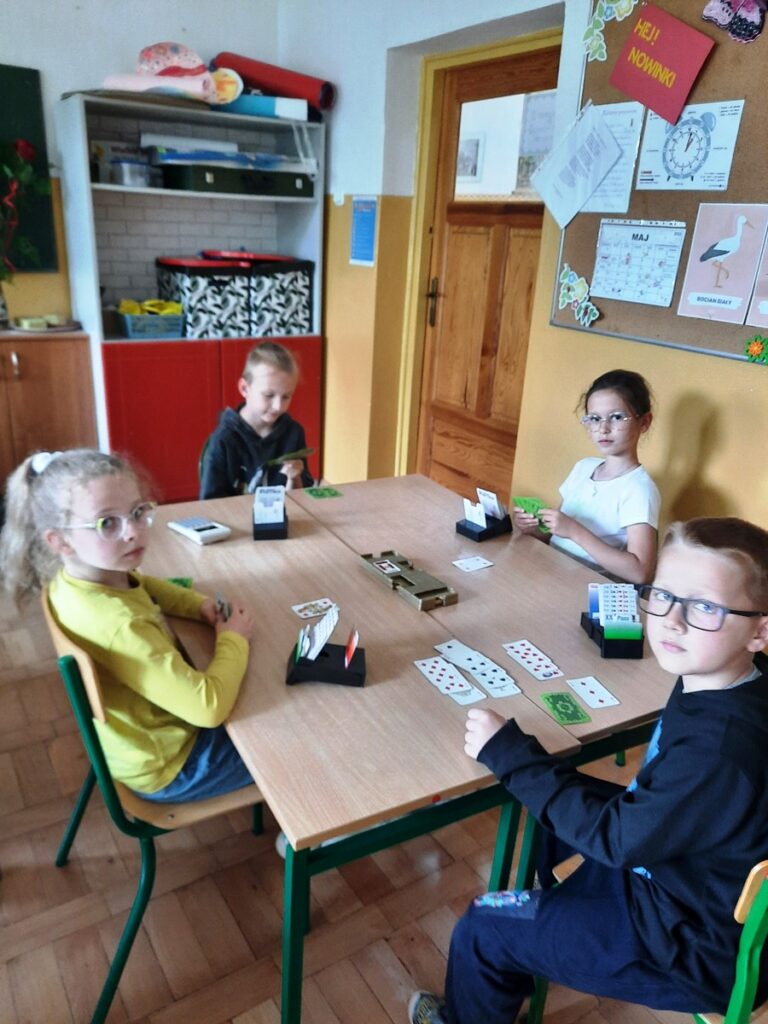
The approach and strategies of bridge and project management are very similar in that you gather all the information you can and then keep adding to that base of information as things develop. You do whatever the probabilities indicated based on the knowledge that you have at that time, but you are always willing to modify your behaviour or your approach as you get new information. In bridge, you behave in a way that gets the best from your partner. And in business, you behave in the way that gets the best from your managers and your employees" said Warren Buffet.
We often hear that bridge is a sport without limits. And right it is: I've seen seven-year-olds eagerly awaiting the next hand, and I played with a great bridge player on her hundred and third birthday. The internet has made boundaries irrelevant. Trouble walking? We sit on the N-S. Difficulty speaking or poor hearing? There are bidding-boxes, you can see everything. That's right. But maybe not everything...
We have a group of several dozen regularly playing blind or visually impaired bridge players in Poland. I met JurekCzeszewski (WK 4) at an instructor's course in Stasikówka. Piotr Łożyński, who died a few years ago, at the Champions of Sport Gala at the GROMAN Hotel near Warsaw. Blind champions, from a variety of disciplines. Blind bridge developed in Poland in the 1970s. In 1996, the first Polish championships were held, since 1998 there have been teams playing, in 2002 there were individual events, and since then annual summer camps have been organised in Ustka.
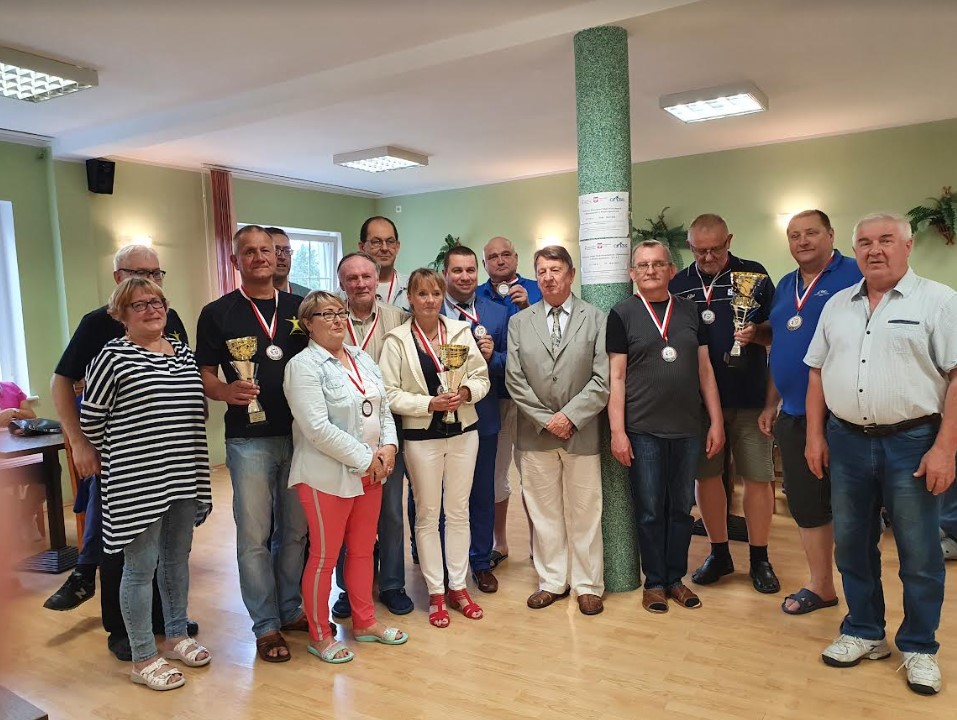
The main organizer of the Polish Championships is the Association of Physical Culture, Sports and Tourism for the Blind and Visually Impaired CROSS in Warsaw in cooperation with clubs and coordinators. Funding comes from grants from the State Fund for Rehabilitation of Disabled People and the Ministry of Sports.
On the Internet I found a website dedicated to facilities for blind bridge players. And there I read a story about the 2009 Nationals, played in Washington, at which Mike Levinson's team, then already visually impaired, beat Jimmy Cayne's players. It was reported that during the game, one of Levinson's players had to leave the table as he received an urgent call from the court. He was replaced by a supporter of Cayne's team. And the team, with a visually impaired Levinson player and an inexperienced supporter, won 141:140. "Amazing game, this bridge" - commented the author of the entry.
How do the blind play? Using cards marked in Braille (you can buy them for about £70, they are a bit thicker than normal cards and more 'plastic' so they don't wear out too quickly), but they can also be ordinary cards. An assistant present at each tournament discreetly reads out the player's hand, blind players 'draw' the cards, i.e. with the help of the assistant or the judge they arrange them in colours between the fingers of one hand. Bidding is done by bidding-boxes and voice. After the table is laid out, the assistant reads out the grandfather cards. And we play. There is one 'but': it is the card said (you have to say what you are playing) that counts, not the card laid down (to eliminate confusion). I have found information about "talking" bidding-boxes with a built-in reader, equipped with an earpiece for the blind player, but I have not (yet?) seen them in our country. I also came across information about a device for the visually impaired - similar to glasses but computerised - the e-sight, greatly improving visual acuity. It was recommended by bridge player Harriette Buckman, former president of the ACBL, because there, too, the population is ageing and the number of people with poor vision is increasing. It's just that it's very expensive equipment - several thousand USD. There are also special cards for the visually impaired, with enlarged symbols, sometimes with clubs marked in green and orange cards. I got an email from the creator of a free app for BBO players John Lambe in the UK: "It's called BBO Visual Assist, it's available in the Google Chrome web shop and it's free."
In Zia Mahmood's memoirs “Bridge and I”, which I translated into Polish, I found this story: "While playing in Kolkata, I met a remarkable young man. His name was Om Parkash Chaudry. He was worthy of mention not only because of his high bridge skills, but also because he was blind. What's more, he did not play with cards marked in Braille. A friend sitting behind him would whisper to him what card he was raising in a hand. Only once did he tell him. Similarly, when Om was playing out, the friend would tell him what cards lay in the grandfather. Om would loudly announce what he was laying down, whether he was playing defence or quarterback. He was wrong very rarely, playing hand after hand at a normal pace.
When I saw him for the first time, he impressed me so much that I asked if he would play with me. He agreed and a few days later we took part in a pairs tournament. We had reached the halfway point, were in a pretty good position, when suddenly the lights went out, an ordinary thing in India. Play stopped, but Om, unaware of what had happened, orchestrated a grandfather card.
- 'You have to wait, the electricity went out,' I informed him. Before I realised what I was saying, Om replied: - Sorry, I forgot that you guys only know how to play by the light. - Quite an innocent remark and at the same time - a lesson as valuable in bridge as in life. Put yourself in the other person's shoes. From their point of view, things may look very different.
I also recommend Louis Sachar's book The Cardturner to anyone with a knowledge of English. I devoured in two days this story of a blind bridge player and his helper, a 17-year-old who initially has no clue about the game, but by assisting his uncle, falls in love with bridge (and the bridge player...). A fantastic read, I am trying to get this book published in Polish.
When I became interested in the subject, I looked for similar groups outside Poland. There aren't many, but before the pandemic I contacted the Dutch (they did an annual national championship tournament), the Greeks (one group played, another was organising itself), in France (the blind used to meet weekly in a Parisian club, they don't meet anymore), the Danes (they played in Copenhagen). There are players in Croatia, Belgium, the States, New Zealand. I have heard back from unseen players from Canada, the Finns are interested. The quoted Zia promised to reach out to the USA and the UK. If we manage to interest players from several countries, we will try to organise an international tournament in Poland. CROSS and OLIMP organisations have already declared their help, we are counting on PFRON and the Polish Paralympic Committee. Our country has initiated efforts to include bridge among the Paralympic disciplines. On the authority of President Marek Michałowski, I met with the President of the Polish Paralympic Committee, ŁukaszSzeliga. He is extremely friendly and helpful. As bridge is a game without barriers, the only distinguishing feature is sight problems, and we want to start with the blind and partially sighted group. It's a multi-year process: first the local games have to happen, then the international games, on all continents, and then - maybe a Slam at the Paralympics? We welcomeanyhelp with open arms!
Małgorzata Maruszkin

